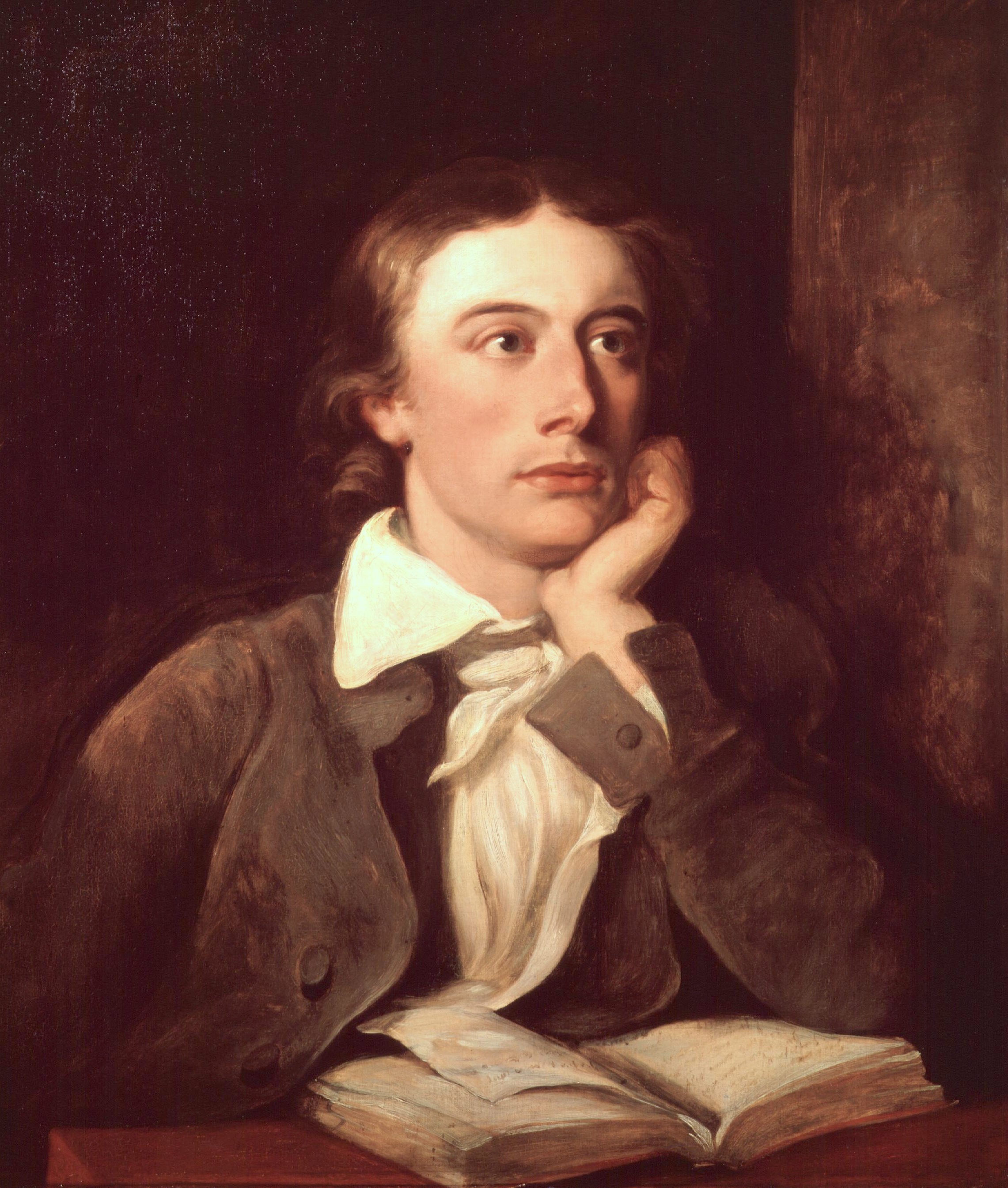John Keats Quotes
“Tis the pest
Of love, that fairest joys give most unrest.”
Bk. II, l. 365
Endymion (1818)
“Forlorn! the very word is like a bell
To toil me back from thee to my sole self!”
Stanza 8
Poems (1820), Ode to a Nightingale
“They will explain themselves — as all poems should do without any comment.”
Letter to George Keats (1818)
Letters (1817–1820)
“Love in a hut, with water and a crust,
Is — Love, forgive us! — cinders, ashes, dust.”
"Lamia", Pt. II, l. 1
Poems (1820)
“He ne'er is crown'd
With immortality, who fears to follow
Where airy voices lead.”
Bk. II, l. 211
Endymion (1818)
“And for her eyes: what could such eyes do there
But weep, and weep, that they were born so fair?”
"Lamia", Pt. I, l. 61
Poems (1820)
Bk. I, l. 72
Hyperion: A Fragment (1819)
Letter to George and Thomas Keats (December 22, 1817)
Letters (1817–1820)
Stanza I
La Belle Dame sans Merci (1819)
“Works of genius are the first things in this world.”
Letter to G. and F. Keats (January 13, 1818)
Letters (1817–1820)
Stanza 40
Poems (1820), The Eve of St. Agnes
“Call the world if you please "The vale of soul-making."”
Letter to George and Georgiana Keats (April 21, 1819)
Letters (1817–1820)
"Sleep and Poetry", st. 11
Poems (1817)
"Lines on the Mermaid Tavern", l. 1–4
Poems (1820)
“Time, that aged nurse,
Rocked me to patience.”
Bk. I, l. 705
Endymion (1818)
“The music, yearning like a God in pain.”
Stanza 7
Poems (1820), The Eve of St. Agnes
"Lamia", Pt. II, l. 229
Poems (1820)
“The days of peace and slumberous calm are fled.”
Bk. II
Hyperion: A Fragment (1819)
Letter to Richard Woodhouse (October 27, 1818)
Letters (1817–1820)
Stanza X
La Belle Dame sans Merci (1819)
“I think I shall be among the English Poets after my death.”
Letter to George and Georgiana Keats (October 14, 1818)
Letters (1817–1820)
Letter to James Hessey (October 9, 1818)
Letters (1817–1820)
I stood tip-toe upon a little Hill; reported in Bartlett's Familiar Quotations, 10th ed. (1919)
Stanza 5
Poems (1820), Ode to a Nightingale
" Sonnet. To One Who Has Been Long in City Pent http://www.bartleby.com/126/23.html"
Poems (1817)
“For cruel ’tis,” said she,
“To steal my Basil-pot away from me.”
"Isabella; or, The Pot of Basil", st. 62
Poems (1820)
Stanza 5
Poems (1820), Ode to a Nightingale
"Ode on Melancholy", st. 3
Poems (1820)
"This living hand" (1819)
“And they are gone: ay, ages long ago
These lovers fled away into the storm.”
Stanza 42
Poems (1820), The Eve of St. Agnes
"Ode on Melancholy", st. 1
Poems (1820)
“In spite of all,
Some shape of beauty moves away the pall
From our dark spirits.”
Bk. I, l. 11
Endymion (1818)
“There is an awful warmth about my heart like a load of immortality.”
Letter to John Hamilton Reynolds (September 22, 1818)
Letters (1817–1820)
Letter to his brother, (January 23, 1818)
Letters (1817–1820)
" Sonnet. Addressed to the Same http://www.bartleby.com/126/27.html" (Benjamin Robert Haydon)
Poems (1817)
Stanza IV
La Belle Dame sans Merci (1819)
“The sweet converse of an innocent mind.”
Sonnet, To Solitude; reported in Bartlett's Familiar Quotations, 10th ed. (1919)
Stanza 23
Poems (1820), The Eve of St. Agnes
Bk. I, l. 1
Hyperion: A Fragment (1819)
Letter to John Hamilton Reynolds (May 3, 1818)
Letters (1817–1820)
